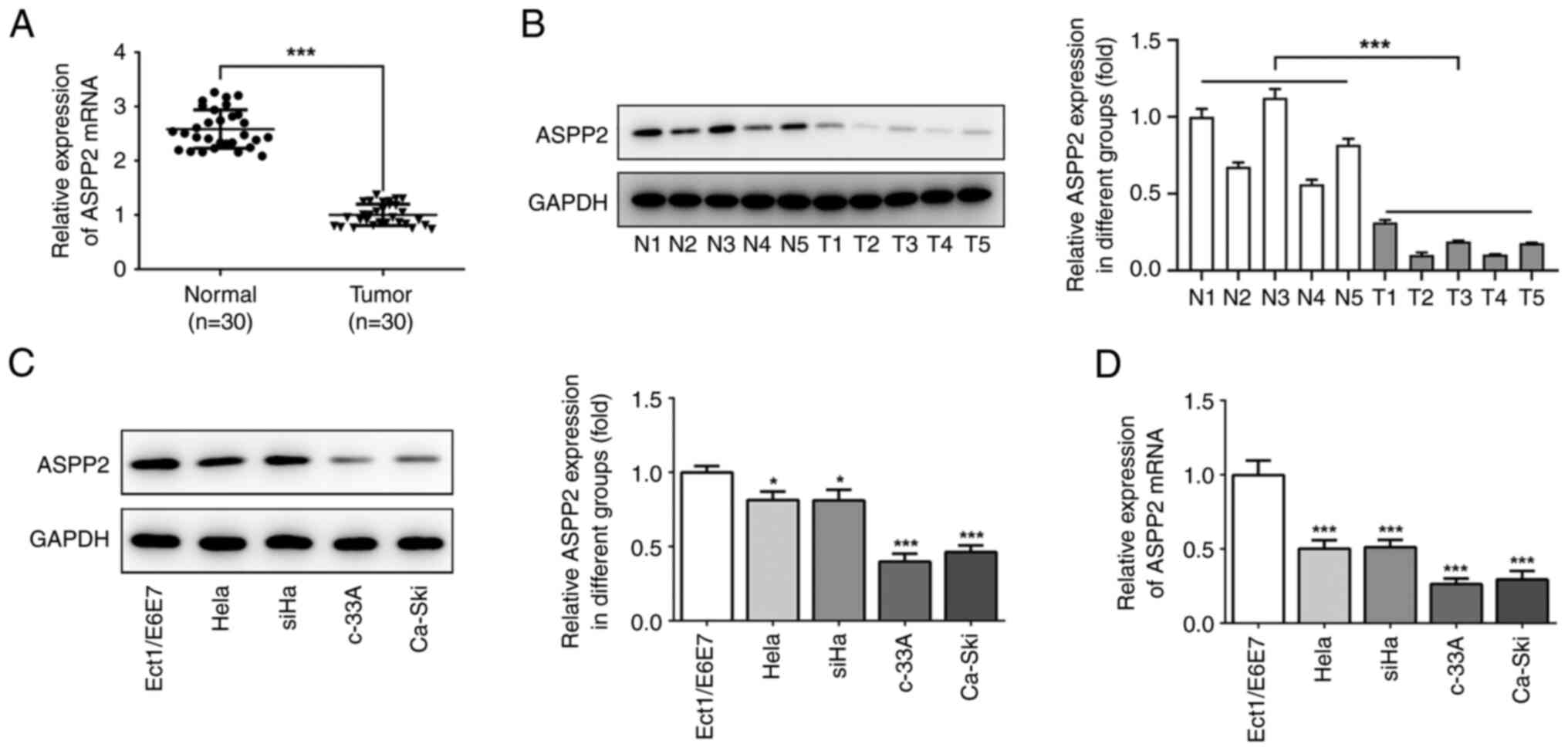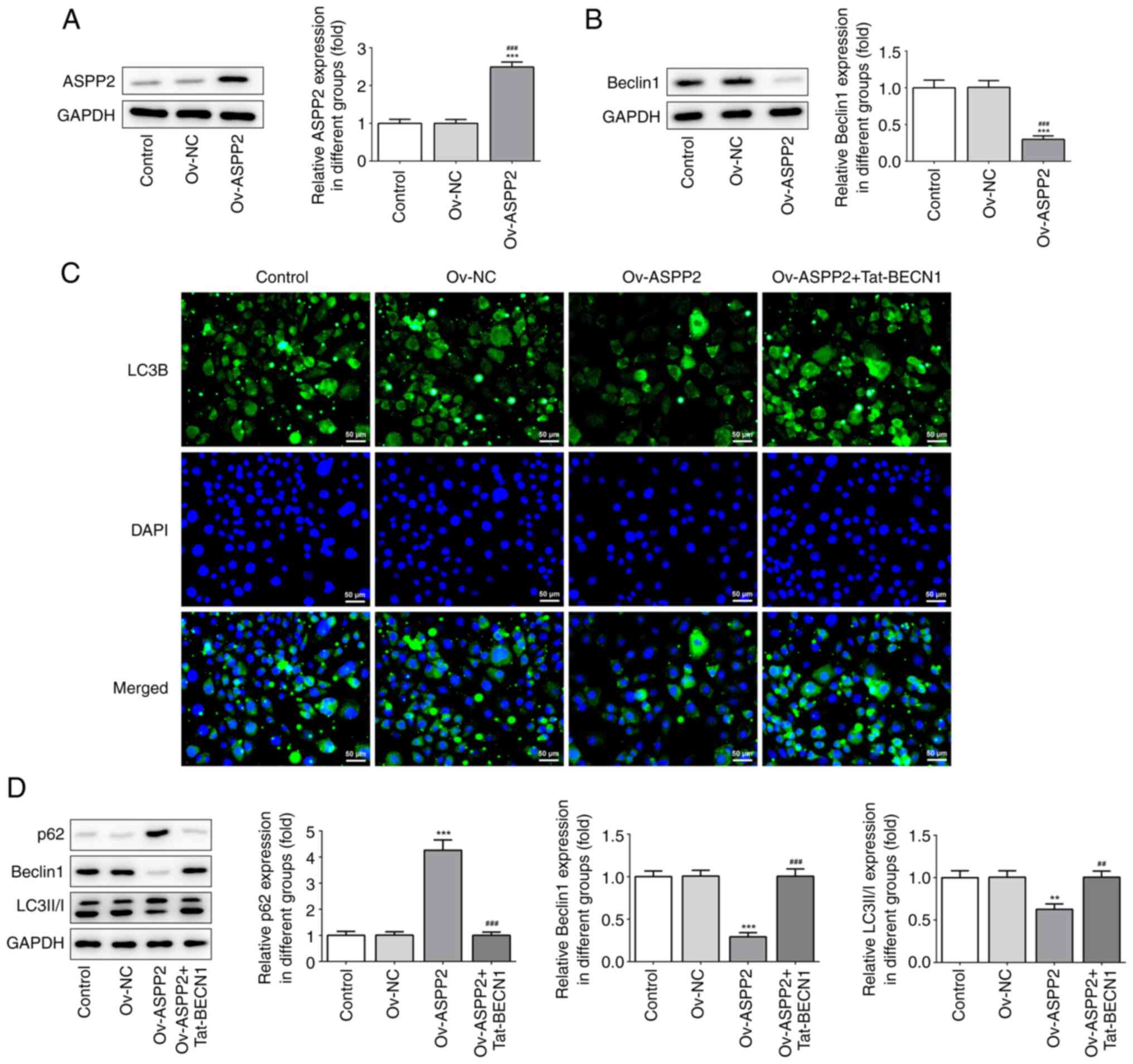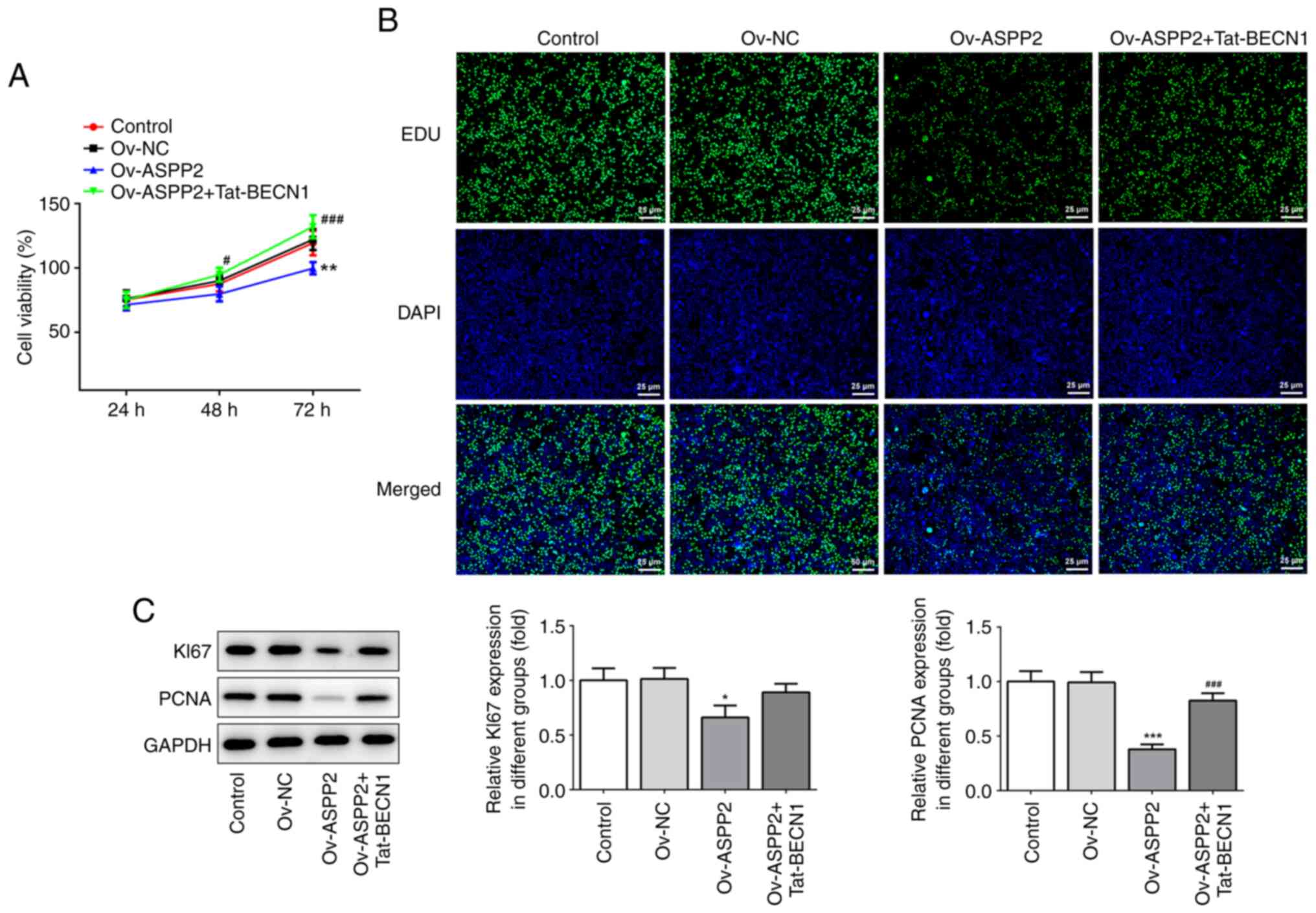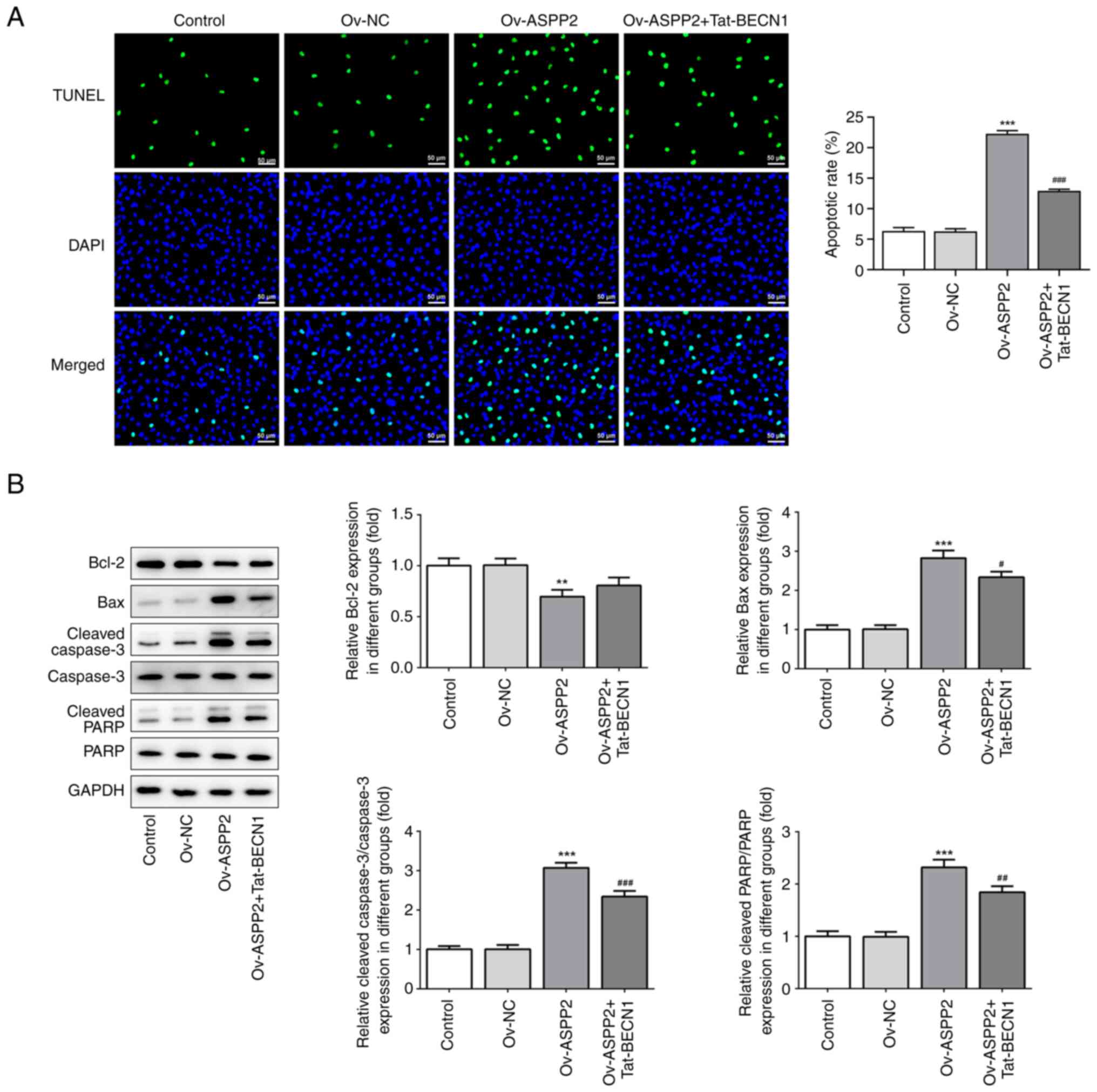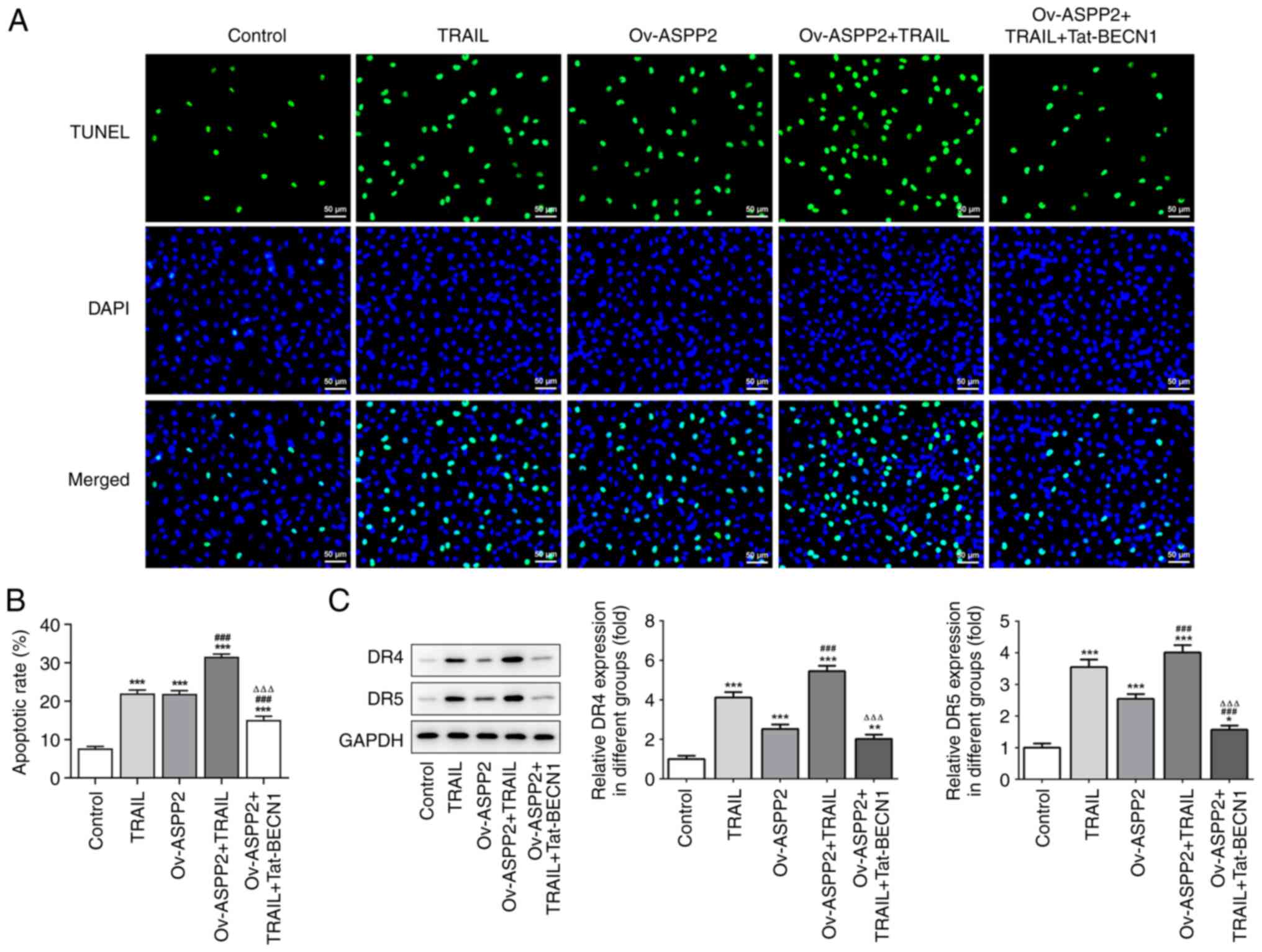|
1
|
Chen G, Zhang M, Zhu J, Chen F, Yu D,
Zhang A, He J, Hua W and Duan P: Common genetic variants in
pre-microRNAs are associated with cervical cancer susceptibility in
southern Chinese women. J Cancer. 11:2133–2138. 2020.PubMed/NCBI View Article : Google Scholar
|
|
2
|
Bray F, Ferlay J, Soerjomataram I, Siegel
RL, Torre LA and Jemal A: Global cancer statistics 2018: GLOBOCAN
estimates of incidence and mortality worldwide for 36 cancers in
185 countries. CA Cancer J Clin. 68:394–424. 2018.PubMed/NCBI View Article : Google Scholar
|
|
3
|
Gardner AB, Charo LM, Mann AK, Kapp DS,
Eskander RN and Chan JK: Ovarian, uterine, and cervical cancer
patients with distant metastases at diagnosis: Most common
locations and outcomes. Clin Exp Metastasis. 37:107–113.
2020.PubMed/NCBI View Article : Google Scholar
|
|
4
|
Printz C: Rethinking a common surgery
technique for early cervical cancer: Experts are reconsidering the
use of minimally invasive radical hysterectomy as a treatment for
early cervical cancer after multiple studies found that patients
who undergo the procedure by either laparoscopy or robotic surgery
have poorer outcomes. Cancer. 125:3485–3487. 2019.PubMed/NCBI View Article : Google Scholar
|
|
5
|
Mendez LC, Moraes FY, Castilho MS, Louie
AV and Qu XM: Lives and economic loss in brazil due to lack of
radiotherapy access in cervical cancer: A cost-effectiveness
analysis. Clin Oncol (R Coll Radiol). 31:e143–e148. 2019.PubMed/NCBI View Article : Google Scholar
|
|
6
|
You KY, Peng HH, Jiang YH, Bi ZF and Qiu
XS: Selective use of concurrent chemotherapy in elderly cervical
cancer patients treated with definitive radiotherapy: Experience
from two institutions. Cancer Manag Res. 11:4815–4823.
2019.PubMed/NCBI View Article : Google Scholar
|
|
7
|
Vives V, Slee EA and Lu X: ASPP2: A gene
that controls life and death in vivo. Cell Cycle. 5:2187–2190.
2006.PubMed/NCBI View Article : Google Scholar
|
|
8
|
Bergamaschi D, Samuels Y, Jin B,
Duraisingham S, Crook T and Lu X: ASPP1 and ASPP2: Common
activators of p53 family members. Mol Cell Biol. 24:1341–1350.
2004.PubMed/NCBI View Article : Google Scholar
|
|
9
|
Konno T, Kohno T, Okada T, Shimada H,
Satohisa S, Kikuchi S, Saito T and Kojima T: ASPP2 suppression
promotes malignancy via LSR and YAP in human endometrial cancer.
Histochem Cell Biol. 154:197–213. 2020.PubMed/NCBI View Article : Google Scholar
|
|
10
|
Yang T, Gao Y, Liu D, Wang Y, Wu J, Liu X,
Shi Y and Chen D: ASPP2 enhances chemotherapeutic sensitivity
through the down-regulation of XIAP expression in a p53 independent
manner in hepatocellular carcinoma. Biochem Biophys Res Commun.
508:769–774. 2019.PubMed/NCBI View Article : Google Scholar
|
|
11
|
Liang B, Chen R, Song S, Wang H, Sun G,
Yang H, Jing W, Zhou X, Fu Z, Huang G and Zhao J: ASPP2 inhibits
tumor growth by repressing the mevalonate pathway in hepatocellular
carcinoma. Cell Death Dis. 10(830)2019.PubMed/NCBI View Article : Google Scholar
|
|
12
|
Wu T, Song H, Xie D, Zhao B, Xu H, Wu C,
Hua K, Deng Y, Ji C, Hu J and Fang L: Silencing of ASPP2 promotes
the proliferation, migration and invasion of triple-negative breast
cancer cells via the PI3K/AKT pathway. Int J Oncol. 52:2001–2010.
2018.PubMed/NCBI View Article : Google Scholar
|
|
13
|
Xie F, Jia L, Lin M, Shi Y, Yin J, Liu Y,
Chen D and Meng Q: ASPP2 attenuates triglycerides to protect
against hepatocyte injury by reducing autophagy in a cell and mouse
model of non-alcoholic fatty liver disease. J Cell Mol Med.
19:155–164. 2015.PubMed/NCBI View Article : Google Scholar
|
|
14
|
Huang W, Li X and Cai L: Effects of ASPP2
on proliferation and apoptosis of malignant spinal tumor cells. Int
J Clin Exp Pathol. 10:8023–8030. 2017.PubMed/NCBI
|
|
15
|
Wang X, Yu M, Zhao K, He M, Ge W, Sun Y,
Wang Y, Sun H and Hu Y: Upregulation of MiR-205 under hypoxia
promotes epithelial-mesenchymal transition by targeting ASPP2. Cell
Death Dis. 7(e2517)2016.PubMed/NCBI View Article : Google Scholar
|
|
16
|
Chen R, Wang H, Liang B, Liu G, Tang M,
Jia R, Fan X, Jing W, Zhou X, Wang H, et al: Downregulation of
ASPP2 improves hepatocellular carcinoma cells survival via
promoting BECN1-dependent autophagy initiation. Cell Death Dis.
7(e2512)2016.PubMed/NCBI View Article : Google Scholar
|
|
17
|
Shi Y, Han Y, Xie F, Wang A, Feng X, Li N,
Guo H and Chen D: ASPP2 enhances oxaliplatin (L-OHP)-induced
colorectal cancer cell apoptosis in a p53-independent manner by
inhibiting cell autophagy. J Cell Mol Med. 19:535–543.
2015.PubMed/NCBI View Article : Google Scholar
|
|
18
|
Song B, Bian Q, Zhang YJ, Shao CH, Li G,
Liu AA, Jing W, Liu R, Zhou YQ, Jin G and Hu XG: Downregulation of
ASPP2 in pancreatic cancer cells contributes to increased
resistance to gemcitabine through autophagy activation. Mol Cancer.
14(177)2015.PubMed/NCBI View Article : Google Scholar
|
|
19
|
Gund R and Christiano AM: Impaired
autophagy promotes hair loss in the C3H/HeJ mouse model of alopecia
areata. Autophagy: Jun 2, 2022 (Epub ahead of print).
|
|
20
|
Follo C, Cheng Y, Richards WG, Bueno R and
Broaddus VC: Autophagy facilitates the release of immunogenic
signals following chemotherapy in 3D models of mesothelioma. Mol
Carcinog. 58:1754–1769. 2019.PubMed/NCBI View
Article : Google Scholar
|
|
21
|
Livak KJ and Schmittgen TD: Analysis of
relative gene expression data using real-time quantitative PCR and
the 2(-Delta Delta C(T)) method. Methods. 25:402–408.
2001.PubMed/NCBI View Article : Google Scholar
|
|
22
|
Zinnah KMA and Park SY: Duloxetine
enhances TRAIL-mediated apoptosis via AMPK-mediated inhibition of
autophagy flux in lung cancer cells. Anticancer Res. 39:6621–6633.
2019.PubMed/NCBI View Article : Google Scholar
|
|
23
|
Hailu HE, Mondul AM, Rozek LS and Geleta
T: Descriptive Epidemiology of breast and gynecological cancers
among patients attending Saint Paul's hospital millennium medical
college, Ethiopia. PLoS One. 15(e0230625)2020.PubMed/NCBI View Article : Google Scholar
|
|
24
|
Schittenhelm MM, Walter B, Tsintari V,
Federmann B, Bajrami Saipi M, Akmut F, Illing B, Mau-Holzmann U,
Fend F, Lopez CD and Kampa-Schittenhelm KM: Alternative splicing of
the tumor suppressor ASPP2 results in a stress-inducible, oncogenic
isoform prevalent in acute leukemia. EBioMedicine. 42:340–351.
2019.PubMed/NCBI View Article : Google Scholar
|
|
25
|
Schittenhelm MM, Illing B, Ahmut F, Rasp
KH, Blumenstock G, Döhner K, Lopez CD and Kampa-Schittenhelm KM:
Attenuated expression of apoptosis stimulating protein of p53-2
(ASPP2) in human acute leukemia is associated with therapy failure.
PLoS One. 8(e80193)2013.PubMed/NCBI View Article : Google Scholar
|
|
26
|
Liang XH, Jackson S, Seaman M, Brown K,
Kempkes B, Hibshoosh H and Levine B: Induction of autophagy and
inhibition of tumorigenesis by beclin 1. Nature. 402:672–676.
1999.PubMed/NCBI View
Article : Google Scholar
|
|
27
|
Qu X, Yu J, Bhagat G, Furuya N, Hibshoosh
H, Troxel A, Rosen J, Eskelinen EL, Mizushima N, Ohsumi Y, et al:
Promotion of tumorigenesis by heterozygous disruption of the beclin
1 autophagy gene. J Clin Invest. 112:1809–1820. 2003.PubMed/NCBI View
Article : Google Scholar
|
|
28
|
Yue Z, Jin S, Yang C, Levine AJ and Heintz
N: Beclin 1, an autophagy gene essential for early embryonic
development, is a haploinsufficient tumor suppressor. Proc Natl
Acad Sci USA. 100:15077–15082. 2003.PubMed/NCBI View Article : Google Scholar
|
|
29
|
Hartung F, Krüwel T, Shi X, Pfizenmaier K,
Kontermann R, Chames P, Alves F and Pardo LA: A novel anti-Kv10.1
nanobody fused to single-chain TRAIL enhances apoptosis induction
in cancer cells. Front Pharmacol. 11(686)2020.PubMed/NCBI View Article : Google Scholar
|
|
30
|
Cao Y, Kong S, Xin Y, Meng Y, Shang S and
Qi Y: Lestaurtinib potentiates TRAIL-induced apoptosis in glioma
via CHOP-dependent DR5 induction. J Cell Mol Med. 24:7829–7840.
2020.PubMed/NCBI View Article : Google Scholar
|
|
31
|
Saparbay J, Tanaka Y, Tanimine N, Ohira M
and Ohdan H: Everolimus enhances TRAIL-mediated anti-tumor activity
of liver resident natural killer cells in mice. Transpl Int.
33:229–243. 2020.PubMed/NCBI View Article : Google Scholar
|
|
32
|
Cao TM and King MR: Supercharged
eGFP-TRAIL decorated NETs to ensnare and kill disseminated tumor
cells. Cell Mol Bioeng. 13:359–367. 2020.PubMed/NCBI View Article : Google Scholar
|
|
33
|
Zhuo FF, Zhang C, Zhang H, Xia Y, Xue GM,
Yang L and Kong LY: Chrysanthemulide A induces apoptosis through
DR5 upregulation via JNK-mediated autophagosome accumulation in
human osteosarcoma cells. J Cell Physiol. 234:13191–13208.
2019.PubMed/NCBI View Article : Google Scholar
|















